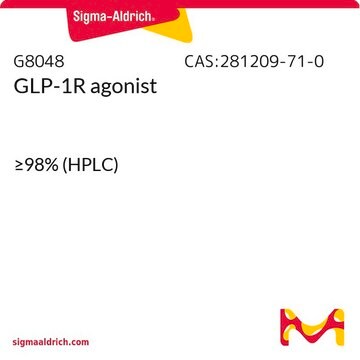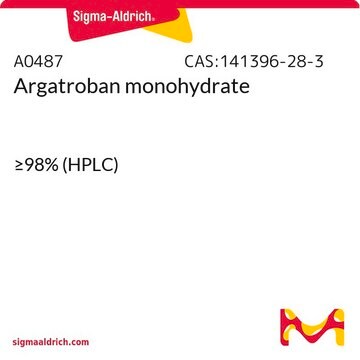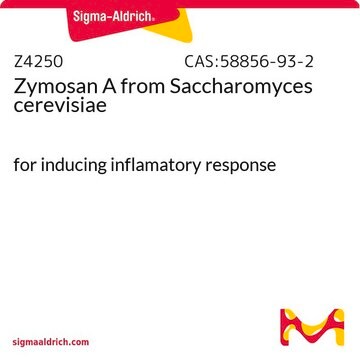SML1051
Bivalirudin trifluoroacetate salt
≥97% (HPLC)
Sinónimos:
D-Phenylalanyl-L-prolyl-L-arginyl-L-prolylglycylglycylglycylglycyl-L-aspariginylglycyl-L-α-aspartyl-L-phenylalanyl-L-α-glutamyl-L-α-glutamyl-L-isoleucyl-L-prolyl-L-α-glutamyl-L-α-glutamyl-L-tyrosyl-L-leucine trifluoroacetate, Hirulog trifluoroacetate salt
About This Item
Productos recomendados
Quality Level
assay
≥97% (HPLC)
form
powder
color
white to off-white
shipped in
wet ice
storage temp.
−20°C
InChI
1S/C98H138N24O33/c1-5-52(4)82(96(153)122-39-15-23-70(122)92(149)114-60(30-34-79(134)135)85(142)111-59(29-33-78(132)133)86(143)116-64(43-55-24-26-56(123)27-25-55)89(146)118-67(97(154)155)40-51(2)3)119-87(144)61(31-35-80(136)137)112-84(141)58(28-32-77(130)131)113-88(145)63(42-54-18-10-7-11-19-54)117-90(147)66(45-81(138)139)110-76(129)50-107-83(140)65(44-71(100)124)109-75(128)49-106-73(126)47-104-72(125)46-105-74(127)48-108-91(148)68-21-13-38-121(68)95(152)62(20-12-36-103-98(101)102)115-93(150)69-22-14-37-120(69)94(151)57(99)41-53-16-8-6-9-17-53/h6-11,16-19,24-27,51-52,57-70,82,123H,5,12-15,20-23,28-50,99H2,1-4H3,(H2,100,124)(H,104,125)(H,105,127)(H,106,126)(H,107,140)(H,108,148)(H,109,128)(H,110,129)(H,111,142)(H,112,141)(H,113,145)(H,114,149)(H,115,150)(H,116,143)(H,117,147)(H,118,146)(H,119,144)(H,130,131)(H,132,133)(H,134,135)(H,136,137)(H,138,139)(H,154,155)(H4,101,102,103)/t52-,57+,58-,59-,60-,61-,62-,63-,64-,65-,66-,67-,68-,69-,70-,82-/m0/s1
InChI key
OIRCOABEOLEUMC-GEJPAHFPSA-N
Biochem/physiol Actions
Storage Class
11 - Combustible Solids
wgk_germany
WGK 3
flash_point_f
Not applicable
flash_point_c
Not applicable
Certificados de análisis (COA)
Busque Certificados de análisis (COA) introduciendo el número de lote del producto. Los números de lote se encuentran en la etiqueta del producto después de las palabras «Lot» o «Batch»
¿Ya tiene este producto?
Encuentre la documentación para los productos que ha comprado recientemente en la Biblioteca de documentos.
Los clientes también vieron
Artículos
Bioactive small molecules for immune system signaling target identification/validation and antibiotics, antivirals, and antifungals offered.
Bioactive small molecules for immune system signaling target identification/validation and antibiotics, antivirals, and antifungals offered.
Bioactive small molecules for immune system signaling target identification/validation and antibiotics, antivirals, and antifungals offered.
Bioactive small molecules for immune system signaling target identification/validation and antibiotics, antivirals, and antifungals offered.
Nuestro equipo de científicos tiene experiencia en todas las áreas de investigación: Ciencias de la vida, Ciencia de los materiales, Síntesis química, Cromatografía, Analítica y muchas otras.
Póngase en contacto con el Servicio técnico












